5. Undergraduate category archive
Have You Experienced This? 0

This past June we saw many graduation celebrations in the towns surrounding our main office here in the heart of New England. It began about eighteen years ago for the high school seniors and who knows how many years for the college grads. (See Undergraduate Catagory below.) It seems like yesterday that I was in their shoes. Well, maybe the day before yesterday.
The valedictorians and an assortment of college commencement speakers will have shared their words of hope and encouragement to millions of graduates by the end of June across the country. You may have heard one or two of them.
There is one speaker you will not hear at any of these celebratory events this week. But you can here. In fact, I believe anyone can benefit from his enriching words of wisdom. His name is Michael Himes. He was a Professor of Theology at Boston College.
His last lecture prior to retirement at BC was one of the most meaningful, inspirational and compassionate talks I have ever had the pleasure of hearing. I almost think that most traditional commencement speakers could be cancelled and a DVD of his last lecture simply be handed out to all the college graduates. Here is yours. Let me know what you think.
As each spring comes and transitions into summer, I am energized with new life as I see our students conclude one phase of their education and start another. For many teenagers, it may not include college but nonetheless it is a journey toward personal growth and maturity. Hopefully, it will be more than biological maturity but emotional, spiritual and intellectual maturity as well. All of which can come about without the benefit of the college experience.
But if college is the next step, then take full advantage of it. We show students how to evaluate colleges in two important ways. First, how does the freshman class statistical profile fit their profile? By the time the junior year is concluded, a good number of statistical measures can be seen to determine that.
Our students will do their due diligence using the AAA method. That includes seeking out the Common Data Set for each college on their list.
Second, is the college qualified to provide the educational and social experience they are seeking? Do not measure a college by the number of professors with a PhD degree it may have. That does not mean they can teach. For example, look here at a Yale professor introducing his course in finance, Economics 252. By the way, this professor in 2013 won a Nobel prize for Economics. That award is as unmerited as the Nobel Peace prize given to Barrack Obama was. I suggest these are two reasons why our country is such poor shape financially. Graduates are either clueless or have cleverly figured out how to “game” the system.
 If you can, watch his perplexing presentation. What this professor says in the introduction to his course could be said in fifteen minutes. Someone somewhere decided that college, like high school, should be a four-year experience, as a result much of what takes up valuable class time is just inflated fluff. What is taught in four years can be covered more than adequately in three. What do you think?
If you can, watch his perplexing presentation. What this professor says in the introduction to his course could be said in fifteen minutes. Someone somewhere decided that college, like high school, should be a four-year experience, as a result much of what takes up valuable class time is just inflated fluff. What is taught in four years can be covered more than adequately in three. What do you think?
In any case, is the college faculty qualified to teach your child? And, what is it they need to learn? Those are the questions which we can help you answer. Call for a FREE get acquainted conversation. (978) 820-1295 or Zoom.
It Is Not Just About Getting In 0
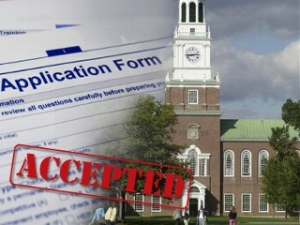 Four short years ago the college bound Class of 2010 completed their high school experience. That was a record year for student applications and competition was keen at the more competitive colleges. The American Enterprise Institute that tracks six-year graduation rates tells us that only 38% of those that went on to college are taking part in commencement ceremonies after four years as an undergraduate.
Four short years ago the college bound Class of 2010 completed their high school experience. That was a record year for student applications and competition was keen at the more competitive colleges. The American Enterprise Institute that tracks six-year graduation rates tells us that only 38% of those that went on to college are taking part in commencement ceremonies after four years as an undergraduate.
And you thought that college was going to be a four-year experience. Yes, it can be that (or less) if you do your due diligence ahead of time.
But here are some reasons why that percentage is so shockingly low.
- ALL four-year colleges are considered. Both public and private from the non-competitive to the most competitive. Often large state universities and less competitive private institutions have weaker or overwhelmed advising staffs.
- Students may fall behind on credits earned in their major.
- They change majors more than twice; credits are not transferable.
- Students drop out for academic or affordability reasons.
- Some classes are over enrolled, limited or cutback and students are not able to take the prerequisite courses in their majors in a timely fashion.
When researching each college using the AAA method a student will be better prepared to avoid most of the above scenarios. This includes understanding the data the colleges are required to report on the Common Data Set. If you do not find the CDS on the college website, ask admissions for it.
 In any case, as the title of this entry states, if the Class of 2010 thought it was competitive getting into college, they are in for a bigger challenge now. Job prospects for new college graduates are at historic lows, partly caused by financial misfeasance and malfeasance on a global scale. If a recent graduate has some internship or cooperative work experience to show on his or her resume, that will help. But with the economy what it is, the challenges still remain.
In any case, as the title of this entry states, if the Class of 2010 thought it was competitive getting into college, they are in for a bigger challenge now. Job prospects for new college graduates are at historic lows, partly caused by financial misfeasance and malfeasance on a global scale. If a recent graduate has some internship or cooperative work experience to show on his or her resume, that will help. But with the economy what it is, the challenges still remain.
 The average student loan debt for graduating seniors in 2008 was $23,186. This year, I dare say the average will be at least $26,000 because the government made additional Stafford loans available to students since 2008. But that does not take into account co-signer or Plus loans that parents may have been taken out during college.
The average student loan debt for graduating seniors in 2008 was $23,186. This year, I dare say the average will be at least $26,000 because the government made additional Stafford loans available to students since 2008. But that does not take into account co-signer or Plus loans that parents may have been taken out during college.
If loans are a burden, parents and students should not hesitate to call us now. We have a sure-fire plan to show you how to become debt free sooner than you think. It makes no sense in starting off with a job that does not afford you the ability to pay basic necessities, provide the comforts and lifestyle you want to have and still meet monthly debt obligations.
In the meantime, graduates, get ready for the toughest job you will have.
Start by reading this timely New York Times article ~ How to market yourself.
Five Extraordinary Colleges You Know Very Little About…until now 0
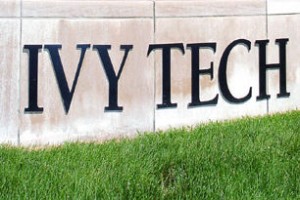 According to the Department of Education, there are 2364 four-year colleges in the United States. Of those, 612 are public colleges. I dare say that about 300 of them would be at least somewhat familiar to about 80% of the public.
According to the Department of Education, there are 2364 four-year colleges in the United States. Of those, 612 are public colleges. I dare say that about 300 of them would be at least somewhat familiar to about 80% of the public.
What about the 2064 unknown colleges. Which of these colleges are worth exploring? When all is said and done, does it matter that much where one goes to college? If you are not looking for a specific program only offered at a particular college, it matters less than you think. What really matters is what you do when you get there.
Some students realize that it might not be a bad idea to look at two-year colleges as well. And some of them are looking at two-year colleges outside of the region in which they live. If there is a community college that is beyond commuting distance but has a specific program you are interested in taking, particularly those with a Phi Theta Kappa Honor Society chapter, you can rent an apartment near the campus. Many colleges such as Greenfield Community College in Massachusetts or the Ivy Tech Community College system in Indiana, can recommend student housing for such students.

Occasionally I like to step back and look at the colleges whose offerings make them stand out. It does not mean they are right for you. But one or more of them could be.
Let me take you on a brief tour of just five of them now.
They are not in any particular order, but # 1 on the list is a two-year college. In fact, this two-year college is tougher to gain admission than is Harvard. Though they are shocked at first, I get a kick out of telling some extremely bright students that they will not have a prayer in being accepted to this college. Here is why.
 1.) Deep Springs College since 1917 accepted only thirteen men into its two-year program each year. That is, until the Class of 2017 applies at which time it may accept female applications. (As of 1/15/17 the decision to accept women has not been made.) It is a rigorous admissions process including several interviews and multiple essays. (The average applicant’s SAT score is 1450.) It is a working cattle and alfalfa ranch but one with a rigorous liberal arts curriculum in the High Desert region of Southern California.
1.) Deep Springs College since 1917 accepted only thirteen men into its two-year program each year. That is, until the Class of 2017 applies at which time it may accept female applications. (As of 1/15/17 the decision to accept women has not been made.) It is a rigorous admissions process including several interviews and multiple essays. (The average applicant’s SAT score is 1450.) It is a working cattle and alfalfa ranch but one with a rigorous liberal arts curriculum in the High Desert region of Southern California.
I have worked with two students in years past who earned their Associate of Arts degree there when it was all-male…until 2018! Yes, young women can now apply to a college where only an AA degree is earned and many applicants, who were also accepted to Ivies, Stanford, and the like, choose to spend two full years in the high desert herding cattle, driving farm tractors, washing dishes and learning how to think critically by means of a very deep academic curriculum from top-flight professors who love to teach there. I have two videos on this page. Be sure to watch this one and the one below.
It was founded by an early California pioneer, LL Nunn in 1917 on his idea that the three pillars… academics, labor, and self-governance help young men prepare themselves for lives of service to humanity. The school’s 26 students, along with its staff and faculty, form a close community. The college operates on the belief that manual labor and political deliberation are integral parts of a comprehensive liberal arts education.
Plus, it is FREE. Each student attends for two years and receives a full scholarship valued at over $50,000 per year. Afterward, most earn their undergraduate and graduate degrees at the world’s most prestigious four-year institutions. It is practically a slam dunk admission transition. Getting a first-class education, and saving up to $110,000 in the process is not a bad way to spend and invest in two years.
Now you know why I can no longer say to some students that they will not have a prayer to being admitted. One intellectually curious young woman I shared this fact with in 1998, was undeterred. Because her goal is to become a college English professor, she saw that as way to be part of the Deep Springs community. (Professors from schools like Stanford, Harvard, and Yale go there to teach periodically for a semester or two.)
Therefore, if you are a male, or female, and intrigued by the concept, why not take 30-minute look at a college like no other.
 2.) Another college that is respected for its philosophy of combining work with learning is The College of the Ozarks. COFO is committed to a five-fold mission of encouraging academic, Christian, cultural, vocational, and patriotic growth in its students.
2.) Another college that is respected for its philosophy of combining work with learning is The College of the Ozarks. COFO is committed to a five-fold mission of encouraging academic, Christian, cultural, vocational, and patriotic growth in its students.
All full-time students work rather than pay for their tuition. The college discourages debt and, like Hillsdale College, does not participate in any government loan programs. On the other hand COFO does participate in federal grant programs so the FAFSA will need to be filed, to determine eligibility. (Hillsdale does not use the FAFSA.)
Academic offerings are surprisingly broad as you can see here. This combined with the strong work program makes it a valuable experience and excellent preparation for a fulfilling life.
By the way, College of the Ozarks has been named a Stone-Cold Sober School by the Princeton Review for ten consecutive years. Alcohol and drugs are strictly prohibited on and off-campus. Therefore, a student who applies to the school with the nickname Hard Work U. and looks forward to spring breaks in Cancun is unlikely to be a good fit for this college.
Another “Age Old Question” 0
Another Age Old Question
If you are a current college student, are you always being asked, What is your major?
If you have one, why did you pick that one? Does the question annoy you because you feel that you are going to have to explain your decision? Perhaps you are not even sure why, thus making you feel more uncomfortable.
I completely understand if you are. But if you have already completed our insightful self-assessment and still are not comfortable with your academic direction, return to that online link now. It is resource to access all during your college years. (Call me if it has been misplaced.) One of things that we help students with while they are still in high school is to identify their innate characteristics. That is, what are their natural strengths and weaknesses that make up their core personality?
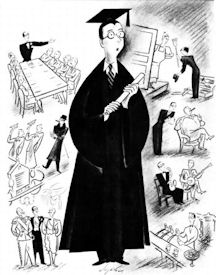 Personalities, (barring some chemical changes in the body) pretty much remain the same throughout our lifetime. Interests, aptitudes and attitudes change. So, why not understand and appreciate who you are and explore the possibilities that stem from there?
Personalities, (barring some chemical changes in the body) pretty much remain the same throughout our lifetime. Interests, aptitudes and attitudes change. So, why not understand and appreciate who you are and explore the possibilities that stem from there?
Our educational system is set up to take us from secondary school, where we are supposed to get a solid grounding in the basic academic subjects, and then on to college where we get to pick the courses we want. Assuming college is necessary, however, are you in college to learn what you want, or are you there to learn what someone else wants? Whether it is a well-meaning parent or prospective employer in a field that you are told, pays well?
Recent Stanford University graduate, Scott Keys, has shared what I believe to be a very helpful insight relating his observations and recommendations. Hopefully, you are getting the kind of advice from your college advisors as to choosing a major that is personal to you and not “cookie cutter”.
As he says, choosing a major is an important decision and students are right to seek outside counsel when figuring out what they want to study. Give us a call or contact us at the right, if you want to explore the possibilities. It all starts with a FREE “get acquainted” conversation.
Stop Asking Me My Major 0
Stop Asking Me My Major
By Scott Keyes
One of my best friends from high school, Andrew, changed majors during his first semester at college. He and I had been fascinated by politics for years, sharing every news story we could find and participating in the Internet activism that was exploding into a new political force. Even though he was still passionate about politics, that was no longer enough. “I have to get practical,” he messaged me one day, “think about getting a job after graduation. I mean, it’s like my mom keeps asking me: What can you do with a degree in political science anyway?”
 I heard the same question from my friend Jesse when students across campus were agonizing about which major was right for them. He wasn’t quite sure what he wanted to study, but every time a field sparked his interest, his father would pepper him with questions about what jobs were available for people in that discipline. Before long, Jesse’s dad had convinced him that the only way he could get a job and be successful after college was to major in pre-med.
I heard the same question from my friend Jesse when students across campus were agonizing about which major was right for them. He wasn’t quite sure what he wanted to study, but every time a field sparked his interest, his father would pepper him with questions about what jobs were available for people in that discipline. Before long, Jesse’s dad had convinced him that the only way he could get a job and be successful after college was to major in pre-med.
My friends’ experiences were not atypical.
Choosing a major is one of the most difficult things students face in college. There are two main factors that most students consider when making this decision. First is their desire to study what interests them. Second is the fear that a particular major will render them penniless after graduation and result in that dreaded postcollege possibility: moving back in with their parents. 
All too often, the concern about a major’s practical prospects are pushed upon students by well-intentioned parents. If our goal is to cultivate students who are happy and successful, both in college as well as in the job market, I have this piece of advice for parents: Stop asking, “What can you do with a degree in (fill in the blank)?” You’re doing your children no favors by asking them to focus on the job prospects of different academic disciplines, rather than studying what interests them.
It is my experience, both through picking a major myself and witnessing many others endure the process, that there are three reasons why parents (and everyone else) should be encouraging students to focus on what they enjoy studying most, rather than questioning what jobs are supposedly available for different academic concentrations.
Where is the Money? 0
Borrowers Beware
 Recently I have been asked to help recent college graduates who are faced with enormous student debt. In some instances, they have had taken co-signer loans while in college. Those lenders like Sallie Mae were offering them in incredible amounts over the last 10 years. The rules varied as to when (and if) the creditworthy cosigner would be released from the obligation.
Recently I have been asked to help recent college graduates who are faced with enormous student debt. In some instances, they have had taken co-signer loans while in college. Those lenders like Sallie Mae were offering them in incredible amounts over the last 10 years. The rules varied as to when (and if) the creditworthy cosigner would be released from the obligation.
In 90% of the cases that will never happen and the lenders know that.
This article is about the misinformation and complex terms in college lending. Unfortunately, Congress over the years has been heavily influenced by the lending companies (now being bailed out by taxpayer money) and the colleges themselves.
None of them have the student’s long-term best interest as a priority. That is a shame. To get a quick understanding of the problem listen to this.
At Programs for Education, we have options ambitious students can take advantage of to pay off their debt faster. If you know of any student facing enormous debt now or in the future, give us a call. Many families are paying for college from cash flow alone with this program.
In addition, all current students can learn about the various loan forgiveness and debt relief programs for graduates entering certain fields of employment. In the meantime, if a student is considering future college costs, now is the time to do a Dry Run to see how much they may have to borrow, if at all.
Student Loan Scam 0
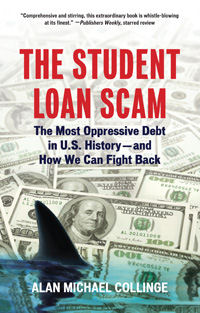 Not everyone would willingly choose to become the public face of the debt-ridden. Alan Collinge didn’t exactly choose to do so, defaulting on $38,000 in student loans only after a series of missteps and strokes of misfortune, but he has embraced his situation with gusto, founding StudentLoanJustice.org to advocate for distressed borrowers and now writing a book, The Student Loan Scam (Beacon Press).
Not everyone would willingly choose to become the public face of the debt-ridden. Alan Collinge didn’t exactly choose to do so, defaulting on $38,000 in student loans only after a series of missteps and strokes of misfortune, but he has embraced his situation with gusto, founding StudentLoanJustice.org to advocate for distressed borrowers and now writing a book, The Student Loan Scam (Beacon Press).
Collinge’s tactics have at times been controversial — he has been criticized for personally attacking student loan lobbyists, for instance — but with the Obama administration putting the student loan programs front and center in its higher education agenda, the industry he writes about and his views are likely to remain relevant. In an e-mail interview, Collinge discussed his personal experiences and his assertion that none of the policy changes currently being debated will make a difference for borrowers without reform of federal bankruptcy laws.
Q. Can you give our readers the 1-minute version of how you ended up getting into such a jam with student loans? How much of your situation evolved because of your own (potentially flawed) decisions, and how much because of the unfair practices or policies or rules by other parties?
Be Aware of College Scams 0
6 Scams That Target College Students
By Kim Clark , US News & World ReportÂ
Operating on the theory that it takes a thief to steal from a thief, a group of Internet scammers has been targeting students who illegally download music, books, and video.
The Chronicle of Higher Education has reported on an apparently bogus collections agency that sent out letters to Bucknell students demanding $500 to settle the students’ alleged illegal downloads.
That’s a new twist on an old strategy of targeting college students. Prosecutors say there are at least six common scams students should watch out for:
1. Fake scholarship promises: The Federal Trade Commission warns against advisers and Web services that charge big fees in return for help locating scholarships.
2. Dodgy student loans: U.S. News‘s Kim Palmer documented how some students have been misled by official-looking documents that were really ads for expensive loans.
One silver lining of the recent economic downturn is a reduction in expensive private loans and lenders. But the FTC says students still need to make sure they stick with low-cost, legitimate education loans. The best deals, says the Project on Student Debt, are the federally backed student loans such as the Perkins (which charges just 5 percent in interest) and Stafford loans. Read more »
Advising in College 0
In business ROI means return on investment. Part of your tuition payments to colleges should include substantive guidance in academic and career planning. Will your young scholar get that direction? A few years ago, the University of Pennsylvania published a helpful article addressing the state of college advising among the Ivies as well as the broader college community.
Of course, much of it depends on how pro-active the student is. But this article in the Chronicle of Higher Education points out the importance of academic advising in college. This is why we want our students to research and compare the differences in each college’s advising and career services departments. Using the AAA method ensures that they will have a greater awareness of those often overlooked college departments before they commit to attending on May 1 of their senior year.Â
Getting In and Dropping Out 0
Colleges Move to Organize Retention Efforts
By Beckie Supiano
Colleges are organizing their efforts to improve retention, but the resources they are using may not be equal to the task. That’s the assessment Jerome A. Lucido, vice provost for enrollment policy and management at the University of Southern California, shared at a session of the College Board Forum in New York this past Friday.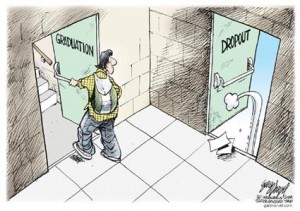
The session used data from a survey conducted as part of the College Board Study on Student Retention in partnership with the Project on Academic Success at Indiana University at Bloomington and the Center for Enrollment Research, Policy, and Practice at the University of Southern California, which Mr. Lucido directs. The researchers hope their study of institutional practices will provide a base line for analyzing which retention practices are effective.
Connecting colleges’ retention efforts to their results can be difficult, said Mary Ziskin, senior associate director of the Project on Academic Success, because “institutions that have low retention rates tend to put more efforts into retention.”
The survey was sent to 1,484 colleges nationwide, of which 442 responded. It built on the results of a pilot survey conducted several years ago. Read more »

